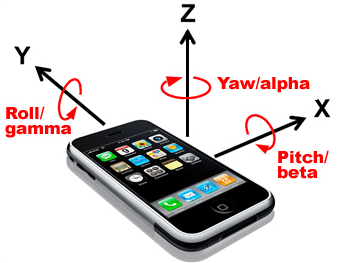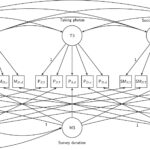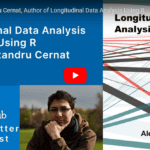Guest editors: Bella Struminskaya, Peter Lugtig (Utrecht University), Florian Keusch (University of Mannheim), Jan Karem Höhne (University of Mannheim and RECSM-Universitat Pompeu Fabra)
The focus of the special issue will be on the collection of behavioral data via sensors and apps in mobile surveys for the social sciences. In addition to self-reports, mobile devices allow researchers to measure device-mediated behavior, such as smartphone and app usage, as well as non-mediated behavior through built-in sensors such as GPS and accelerometers to study movement. Beyond smartphones, other devices such as pedometers, wrist- or waist worn devices aim to measure human activity.

Such passive mobile data collection can potentially decrease measurement errors and reduce respondent burden. Active data collection using apps, camera, microphone or other smartphone sensors and wearables allows researchers to broaden the research questions they want to investigate or study the social phenomena at scale. At the same time, incorporating sensor measurements to augment or replace survey questions and using apps and wearables brings challenges for representativeness, survey design and implementation, measurement, as well as ethical and legal considerations that are yet to be understood. The aim of this special issue is to provide insights into the current state and methodological issues of data collection using smartphone sensors and apps.
Topics include, but are not limited to:
- Methods of incorporating app and sensor measurement in surveys
- Issues of willingness to participate, consent, and compliance with surveys
- Combining EMA and ESM with sensor measurements in surveys
- Data quality of sensor measurements, combined modeling of quality of measures from self-reports and sensor measurements
- Substantive applications of smartphone sensor and app-based measurement
- Collection of time-location data in combination with surveys
- Collection of activity data in combination with surveys
- Diary-based studies with sensors and apps
- Comparing sensor and app-based measurements to traditional approaches (online, face to face, telephone, paper)
- Measurement errors and missing data in sensor and app-based measurement
- Measurement reactivity (conditioning)
- Experimental studies on the design and usability of apps and smartphone sensor-based studies
- Technological issues during data collection, analysis and curation and how to ameliorate/fix these
- Issues of privacy, data sharing and data security, ethical issues
- Emergent issues not covered by this list
Submission process
The submission process is a two-step procedure:
1. Submission of extended abstracts:
Authors are invited to submit structured extended abstracts of a maximum 750 words. The abstracts should describe the topic, data and methods, results of the study, and take home messages. Authors should clearly indicate whether data have already been collected and include details on the sample size, data collection period, and size of the data.
Deadline for submissions: June 1, 2019.
The abstracts will be reviewed by the guest editors and by June 15, 2019 the authors will be informed whether or not they are invited to submit a full paper.
2. Submissions of full articles
Selected authors will be invited to submit full research articles of no more than 7,400 words (main text). Submitted full paper manuscripts will be peer-reviewed in accordance with standard journal practice and will be published online soon after acceptance.
Deadline for submissions: October 1, 2019.
Please refer to https://faculty.chass.ncsu.edu/garson/SSCORE/library.htm for the Social Science Computer Review requirements. Submission guidelines will be communicated in more detail to the authors of accepted abstracts.
Timeline
- 1 June 2019 – Submission of extended abstracts
- 15 June 2019 – Decision about invitations for full articles
- 1 October 2019 – Deadline for submission of the full article
- 1 January 2020 – Feedback from the reviewers and editors
- 20 February 2020 – Revisions due
- May-June 2020 – Publication of the special issue (online first)
Extended abstract submission
Extended abstracts of not more than 750 words should be submitted to Bella Struminskaya at (b.struminskaya@uu.nl) by June 1, 2019, preferably as a MS Word document.
Please include the name, affiliation, and email address of each author and ensure that the abstract clearly states the topic that you will address, how you will address it, what data and/or methods you will use, results, and what the take home messages are likely to be.
Queries about this special issue can be sent to Bella Struminskaya (b.struminskaya@uu.nl).





